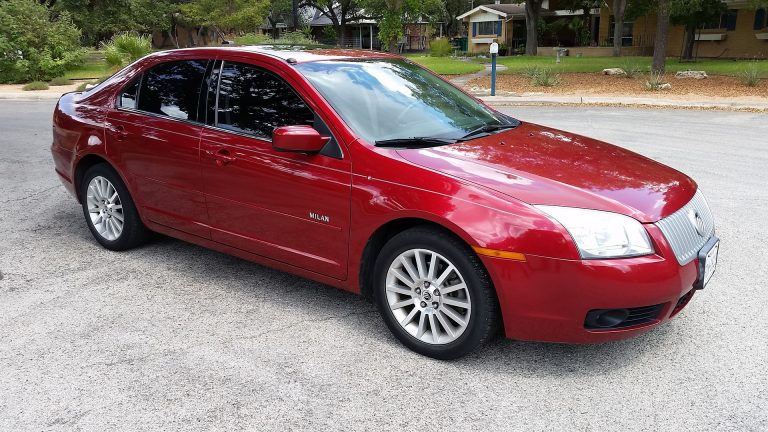What is Personal Injury Protection?
Personal Injury Protection (PIP) is an extension of your auto insurance policy that pays toward your medical expenses if you are injured in a car accident. In some states, personal injury protection coverage is more broadly defined, covering any instance in which you are injured by an automobile. This includes being injured in an auto accident, being hit by a car, or even if you bumped your head on the door while entering or exiting the car.
Personal Injury Protection in No-Fault States
You may encounter the term “no-fault insurance” in reference to personal injury protection. “No Fault”, in this case, means it doesn’t matter who is at fault and caused the injury. If you have PIP in a no-fault state, your personal injury protection selections on your policy direct your medical care. The no-fault concept applies even if you are injured in car that belongs to someone else but you have your own auto insurance policy. Your personal injury protection medical coverage on your auto insurance policy follows you around and covers you wherever you might be injured by an automobile in the United States.
PIP Coverage Amounts Vary by State
Each state has its own rules regarding Personal Injury Protection coverage amounts included with auto insurance. In some states, personal injury protection is not included with an auto insurance policy. Your health insurance coverage would cover all or part of your medical costs in those states, subject to your health insurance policy terms.
In other states that do include personal injury protection as part of an auto policy, you may be allowed to choose you coverage limit or state laws may enforce a fixed limit of coverage.
Let’s say you live in a state that has a fixed personal injury protection amount of $20,000. You won’t have the option to change this coverage amount up or down, and if your medical expenses due to being injured by an automobile exceed your $20,000 in coverage, your medical coverage would then roll over to your health insurance coverage after your $20,000 limit is exceeded.
In a state that allows you to select different coverage amounts, you’ll usually have several coverage amount options. For example, New Jersey allows Auto Insurance customers to select personal injury protection coverage in amounts ranging from $15,000 up to $250,000. There are several predefined steps in between. You can’t select an arbitrary number.
Depending on the amount of personal injury protection coverage selected, premiums can move up or down based on that selection. If all other things are equal, a person selecting $15,000 in personal injury protection coverage will pay less for their auto insurance premiums than someone who selects $250,000 in personal injury protection coverage.
However, savings on premiums aren’t the only consideration.
Avoid Double Exposure to Deductibles and Copayments
Personal injury protection coverage has a deductible, and again, this deductible amount might offer different options you can choose, ranging from low to high. When you are injured by an automobile and have a personal injury protection claim, you would have to pay the deductible for that coverage. Often, there is also a co-payment amount.
If your medical needs exceed the coverage limit for your personal injury protection, your coverage will then roll over to your existing health insurance coverage. There may be deductibles to satisfy and co-payments to pay with your health insurance as well.
Carrying a lower amount of coverage for your personal injury protection can create exposure to double payments for deductibles and co-payments. You might have to pay deductibles for the auto insurance and health insurance as well as possibly paying co-payments to each company.
If you live in a state that has a lower minimum limit for personal injury protection, for example, $10,000, any injuries you suffer due to an automobile can easily exceed this limit. In this case, you would pay the deductible for your PIP and then may have to pay a deductible and/or copayment for your health insurance coverage.
In some states, you will have to pay a copayment for your Personal Injury Protection as well as a deductible. For example in New Jersey, you can choose a PIP deductible as high as $2,500. If you have a PIP claim due to an injury from an automobile and you chose the highest deductible, you would pay $2,500 for your deductible plus a 20 percent copayment on the first $5,000. This copayment of up to $1,000 in addition to your $2,500 deductible means you would pay $3,500 for your injury, assuming that you don’t exceed your PIP coverage and then have to pay a health insurance deductible and/or copayment as well or pay the remaining medical bills out of pocket.
In effect, choosing a lower personal injury protection coverage amount or a high deductible might save you money — until it costs you money later.
Health Insurance Primary as an alternative to Personal Injury Protection
Some states provide you with the option to make your health insurance primary if you were injured by an automobile. Not all health insurance companies or plans allow this structure. If you are in a state that allows you to make your health insurance primary, verify with your health insurance company first before making any changes to your policy.
Medicare, Medicaid, and many Union health insurance plans will not pay primary for auto insurance medical claims. Beyond those, it’s hit or miss. Behind the scenes, some health insurance plans are high-deductible plans for employers and because of this structure these plans will not pay health insurance primary for auto insurance medical claims.
In most cases, if not all, everyone in the household will need to qualify for health insurance primary if you wish to select health insurance primary for medical coverage on your auto insurance policy. If you have different health insurance plans within your household and some will pay health insurance primary while others will not, you can’t choose health insurance primary for your auto insurance.
Contact your health insurance provider if you have questions or need to verify coverage. Here’s the conversation you need to have with them:
Tell them which state you live in and then ask, “If I am injured in an automobile accident will you pay primary?”
If all goes well, they will say yes. They might also say no, or they might give you a long answer which, when translated, means that if you select health insurance primary on your auto insurance policy then they will pay primary. This is also a yes, but it may not sound like one.
Take notes during this conversation with your health insurance company and ask your auto insurance agent to help you understand the answer in plain English if the answer is complicated. Your agent can translate insurance legalese to English for you. The representative you’re speaking with on the phone at your health insurance company has a standard answer they are instructed to provide to customers. That answer was likely drafted by an attorney, and while technically correct, may not be easy to understand.
The agent and auto insurance company can advise you, but will let you choose any coverage that is available to you in that state. By law in most states, they have no choice but to give you the coverage you select. However, that does not mean that your health insurance company will pay primary just because you’ve chosen Health Insurance primary and the insurance company let you make that selection.
If you have health insurance primary selected for your auto insurance medical coverage and your health insurance company will not pay primary, you create financial exposure for yourself and, at very least, may have to pay an additional deductible to the auto insurance company to get medical coverage.
When choosing Health Insurance Primary in a state that requires Personal Injury Protection for auto insurance policies, you may be able to lower the amount of personal injury protection on your auto policy. Where required by your state, the coverage would still exist, but personal injury protection would be secondary to your health insurance coverage.
Personal Injury Protection: Additional PIP Coverages
Depending on state rules, Personal Injury Protection may offer additional coverages beyond your medical expenses. Many of these PIP coverages are optional and may or may not be available in your state. Ask your agent which PIP options are available and what limits are available.
Some additional Personal Injury Protection coverages may include:
- Funeral Expenses
- Childcare Expenses
- Survivor’s Loss
- Lost Wages
Personal injury protection may include a provision to help you recover lost wages. In some states, you can choose the weekly amount of compensation for lost wages. The default amounts may be low for some people, starting at $100 per week and commonly capped at $700 per week, so be sure to review this option with your insurance agent. To be compensated for lost wages, you’ll need to prove your earnings. Save those pay stubs.
Be Your own Consumer Advocate
Be aware that some agents will suggest health insurance primary, low PIP coverage limits, or high PIP deductibles as a way to lower your insurance premium without fully discussing your options and the possible ramifications. Insurance agents are like representatives in any other field. Some will be thorough and represent your needs well, some are simply distracted, and some are more interested in making the sale than in advising you thoroughly. Additionally, many times customers don’t want to know every detail about their auto insurance policy and wish to move through the coverage conversation quickly.
Review Your Policy and Personal Injury Protection coverage with Your Agent
Your personal injury protection coverage and your liability coverage are the two most important coverage selections you will make on your auto insurance policy because they can expose you to the most financial risk. You should review your policy with your agent once every year or two because life happens and needs continue to change. When reviewing your policy with your auto insurance agent, be sure to focus the conversation on these two coverage areas. If you feel you’re not getting a straight answer or aren’t getting the detail you need, get a second opinion.






